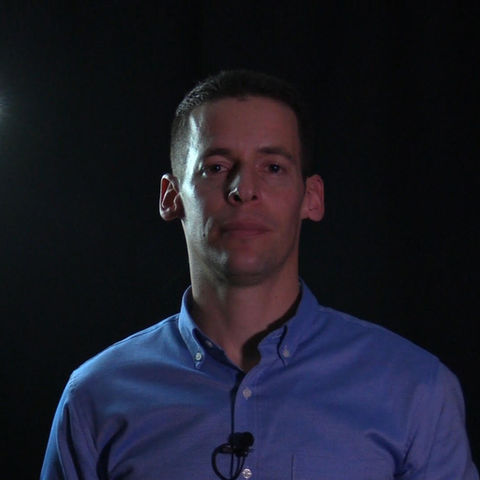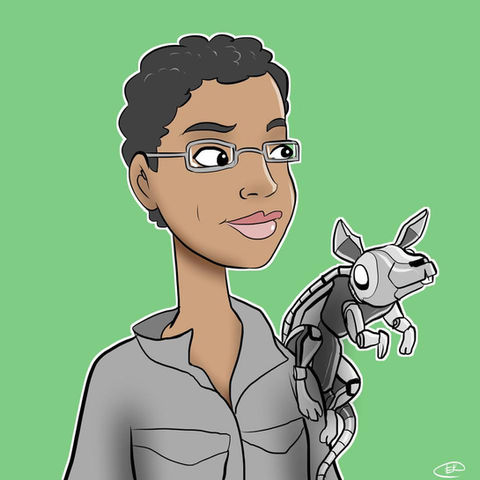
BOOK:
R.U.R. and the Vision of Artificial Life
In 2020, the book Robot 100: Sto rozumů was published in Czech by the University of Chemistry and Technology Prague. The volume brings together 90 contributions by 100 authors, reflecting on Karel Čapek’s legacy and the concept of robots from a wide range of perspectives.
In 2024, a selection of 20 essays from this collection was published in English by MIT Press under the title R.U.R. and the Vision of Artificial Life. The volume also includes a new English translation of Karel Čapek’s play R.U.R..
English translations of additional Robot 100 essays that are not included in the MIT Press edition are available for free download here.
About the Book
A new translation of Karel Čapek's play R.U.R.—which famously coined the term “robot”—and a collection of essays reflecting on the play's legacy from scientists and scholars who work in artificial life and robotics.
Karel Čapek's “R.U.R.” and the Vision of Artificial Life offers a new, highly faithful translation by Štěpán Šimek of Czech novelist, playwright, and critic Karel Čapek's play R.U.R.: Rossum's Universal Robots, as well as twenty essays from contemporary writers on the 1920 play. R.U.R. is perhaps best known for first coining the term “robot” (in Czech, robota means serfdom or arduous drudgery). The twenty essays in this new English edition, beautifully edited by Jitka Čejková, are selected from Robot 100: Sto rozumů, an edited collection in Czech with perspectives from 100 contemporary voices that was published in 2020 to celebrate the hundredth anniversary of the play.
Čapek's robots were autonomous beings, but biological, not mechanical, made of chemically synthesized soft matter resembling living tissue, like the synthetic humans in Blade Runner, Westworld, or Ex Machina. The contributors to the collection—scientists and other scholars—explore the legacy of the play and its connections to the current state of research in artificial life, or ALife. Throughout the book, it is impossible to ignore Čapek's prescience, as his century-old science fiction play raises contemporary questions with respect to robotics, synthetic biology, technology, artificial life, and artificial intelligence, anticipating many of the formidable challenges we face today.
Book Launch
The book was launched on January 25, 2024, at the University of Chemistry and Technology Prague, on the 103rd anniversary of the premiere of R.U.R. The hybrid event brought together authors on site and online, including translator Štěpán Šimek and a representative of MIT Press.
See photo gallery.
Reviews
"A must-read for anyone interested in ALife."
— The Irish Times
“R.U.R. is fascinating and bizarre.... The most important contribution of the volume is a new translation of the play by Štěpán Šimek... who manages to capture the surreal weirdness of Čapek's dark comedy of errors while making the text accessible to contemporary audiences.... Čapek's masterpiece reminds us first that just because we can does not mean we should.”
"The appearance of a new translation of R.U.R. along with a collection of essays specifically looking at the implications of the play for modern science and technology, R.U.R. and the Vision of Artificial Life, edited by Jitka Čejková, is a chance to consider how Orwell and Čapek viewed the world."
"Čapek, it turns out, was a little miffed that his “robots” had been so hijacked, and in 1935, he wrote a column in the Lidové noviny “defending” his vision of what robots should be, while also resigning himself to what they had become. A new translation of this column is included as an afterword in a new English translation of R.U.R. that is accompanied by 20 essays exploring robotics, philosophy, politics, and AI in the context of the play, and it makes for fascinating reading."
— Evan Ackerman, IEEE Spectrum
“This indispensable volume offers a new English translation of Čapek's influential play, restoring its original structure, as the accompanying array of essays provide valuable context and interpretation. Capek's prescient meditation on human-android relations is timely and necessary.”
— Mark Kingwell, Professor of Philosophy, University of Toronto; author of Singular Creatures
“More relevant now than ever, this is Karel Čapek’s fascinating and visionary story about (artificial) life, science, soul, and love. The play is complemented with modern reflections on creation and humanity by artificial life scientists.”
— Steen Rasmussen, Professor in Physics, University of Southern Denmark; coeditor of Protocells: Bridging Nonliving and Living Matter
“I was thrilled by this brilliant new translation of R.U.R., the original robot uprising tale, that is as relevant today as it was a century ago. This is a must-have book for anyone interested in the history of technology and its impact on politics and society.”
— Annalee Newitz, author of Autonomous and The Terraformers
Editor
Jitka Čejková studied chemical engineering at University of Chemistry and Technology Prague, where she successfully defended her doctoral degree in 2010. She currently works as Associate Professor in the Chemical Robotics Laboratory at UCT Prague. She has postdoctoral experience from the University of Trento and the University of Tokyo. Her research focuses on how chemical engineers can contribute to artificial life research. Artificial life is the study of artificial systems that exhibit the behavioural characteristics of natural living systems. She focuses on the investigation of organic droplets with life-like behaviour and recently she proposed to call such droplets “liquid robots”. She is active in science communication both in the Czech Republic and abroad. She focuses primarily on popularization of research in the area of artificial life and the etymology of the word robot, which comes from Czech.


R.U.R.
R.U.R. is a science fiction play by the Czech writer Karel Čapek. R.U.R. stands for Rossum's Universal Robots. The work was published in Prague by Aventinum in 1920 and premiered at the city's National Theatre on 25 January 1921. The fact that the play was already translated into 30 languages in 1923 testifies to the play's success. Although several English translations of the book can be found, they usually contain errors and inaccuracies. Our book R.U.R. and the Vision of Artificial Life brings a completely new and modern translation of the first edition of the R.U.R.
R.U.R. was translated for this volume by Štěpán S. Šimek, who is a director, translator, adaptor, and Professor of Theatre at Lewis & Clark College in Portland, Oregon.
Authors
ILUSTRATIONS
The illustrations featured as frontispieces for the essays in this book are drawn from the 49th International Children’s Exhibition of Fine Arts Lidice (ICEFA Lidice), held in 2021. This extraordinary annual exhibition is organized by the Lidice Memorial, an organization of the Ministry of Culture of the Czech Republic. The organization is dedicated to keeping alive the memory of the annihilation of the village of Lidice, razed to the ground by German Nazi troops on June 10, 1942. The annual exhibition was established to commemorate the child victims of Lidice, as well as other children whose lives have been affected or ended by warfare. The exhibition became international in 1973, and in recent years more than 25,000 children from over 60 countries have participated.
In 2021 the theme of the exhibition was robots and artificial intelligence. The catalog stated: “Since the time Karel Čapek wrote the drama R.U.R. (Rossum’s Universal Robots), advanced technologies have become a part of everyday life and the word ‘robot’ has spread out all over the world. Various machines and devices help people in many ways. However, they bring about both unprecedented opportunities and unprecedented pitfalls. All this is reflected in works by young artists presented in this year’s exhibition.”
We are grateful to ICEFA Lidice, and to the individual artists, for their permission to reproduce the works in this book. We encourage you to explore more at https://www.mdvv-lidice.cz/en.

Chapters
The book contains 20 essays selected from 90 contributions of the Czech version of the Robot100 book.
Titles and authors will be uncovered continuously on the blog and on social media (Facebook, X #Robot100).
Jitka Čejková Commemorates the Centennial of Karel Čapek’s R.U.R. (Introduction provided by Literary Hub)
Contact
Editor:
Doc. Ing. Jitka Čejková, Ph.D.
Department of Chemical Engineering
University of Chemistry and Technology Prague
Technická 3, 166 28, Praha 6
Czech Republic
tel.: (+420) 220444460





























